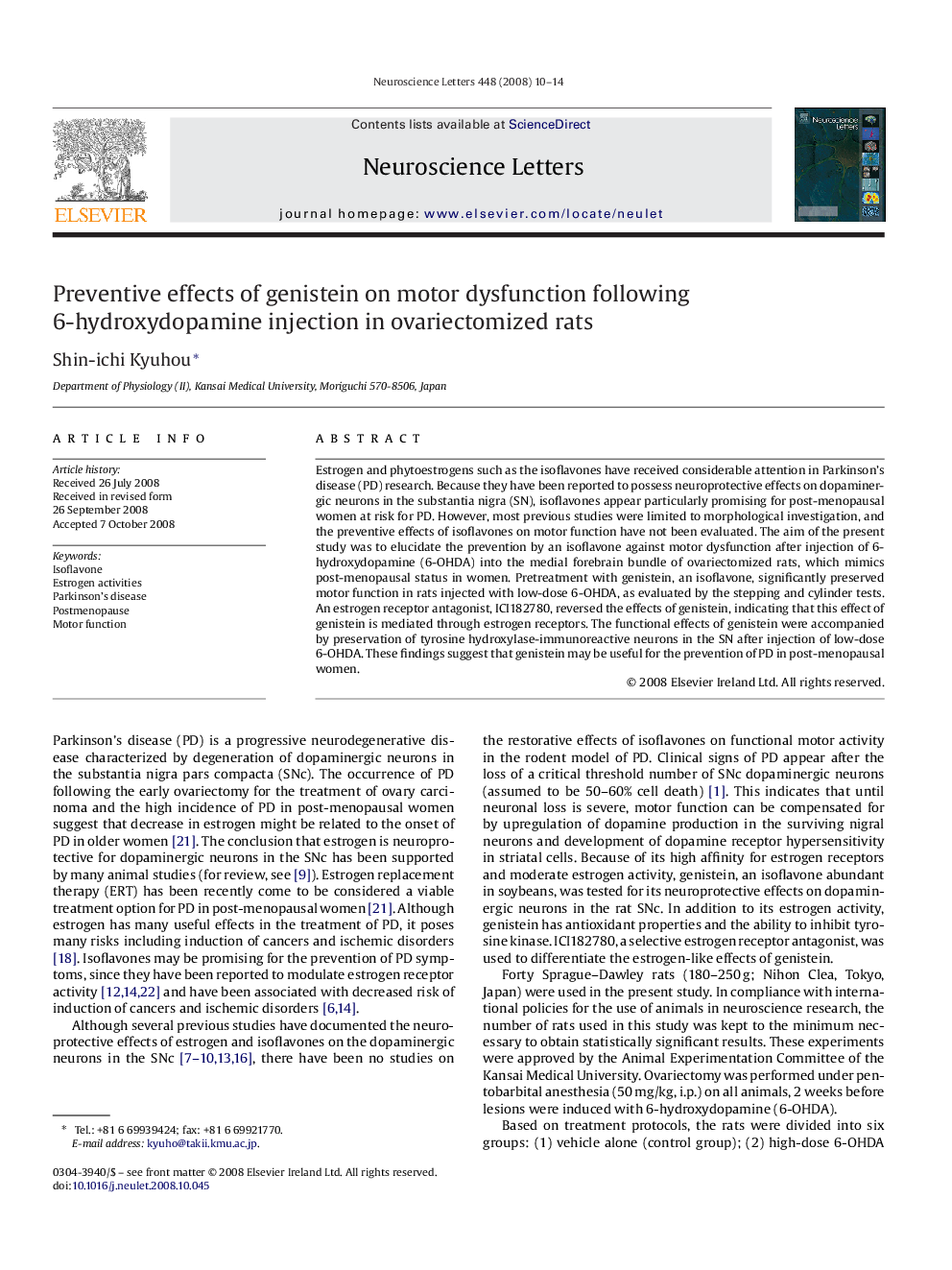| Article ID | Journal | Published Year | Pages | File Type |
|---|---|---|---|---|
| 6285622 | Neuroscience Letters | 2008 | 5 Pages |
Estrogen and phytoestrogens such as the isoflavones have received considerable attention in Parkinson's disease (PD) research. Because they have been reported to possess neuroprotective effects on dopaminergic neurons in the substantia nigra (SN), isoflavones appear particularly promising for post-menopausal women at risk for PD. However, most previous studies were limited to morphological investigation, and the preventive effects of isoflavones on motor function have not been evaluated. The aim of the present study was to elucidate the prevention by an isoflavone against motor dysfunction after injection of 6-hydroxydopamine (6-OHDA) into the medial forebrain bundle of ovariectomized rats, which mimics post-menopausal status in women. Pretreatment with genistein, an isoflavone, significantly preserved motor function in rats injected with low-dose 6-OHDA, as evaluated by the stepping and cylinder tests. An estrogen receptor antagonist, ICI182780, reversed the effects of genistein, indicating that this effect of genistein is mediated through estrogen receptors. The functional effects of genistein were accompanied by preservation of tyrosine hydroxylase-immunoreactive neurons in the SN after injection of low-dose 6-OHDA. These findings suggest that genistein may be useful for the prevention of PD in post-menopausal women.
